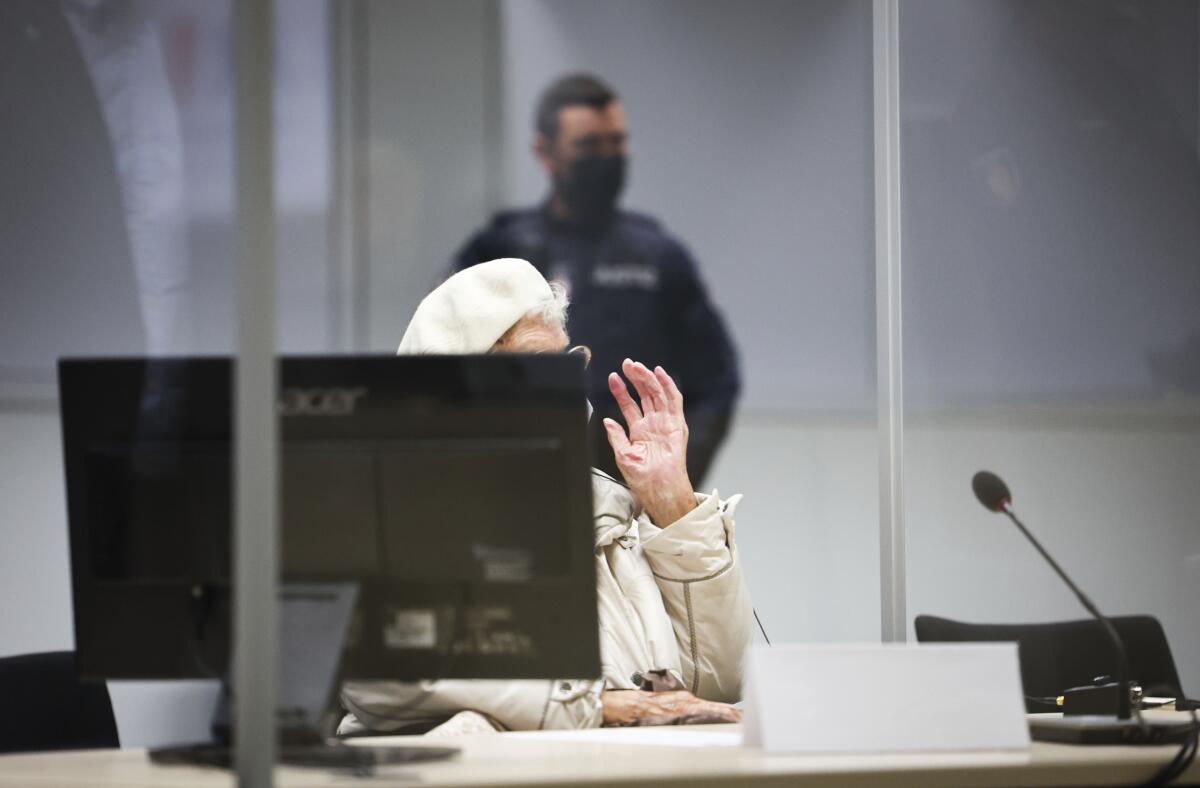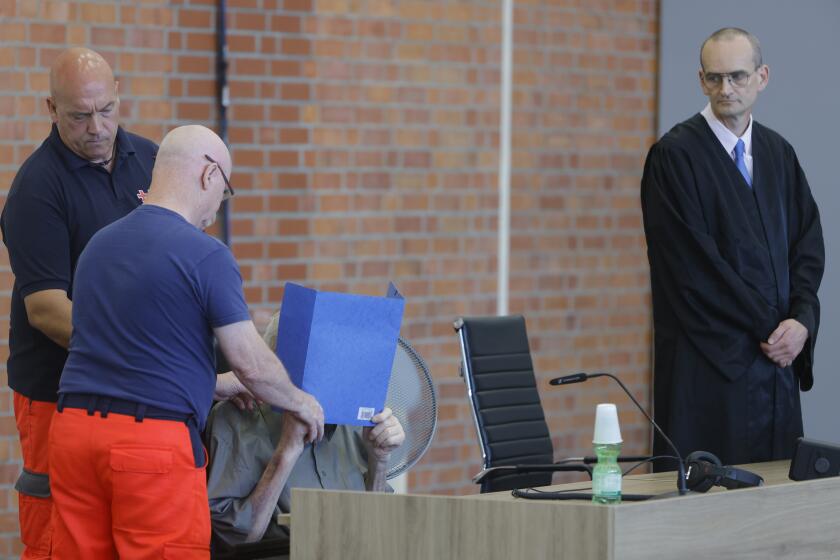97-year-old former secretary at Nazi concentration camp is convicted in German court

- Share via
BERLIN — A German court Tuesday convicted a 97-year-old woman of being an accessory to more than 10,000 murders because of her role as a secretary to the SS commander of the Nazis’ Stutthof concentration camp during World War II.
Irmgard Furchner was accused of being part of the apparatus that helped the camp function. The Itzehoe state court in northern Germany gave her a two-year suspended sentence, the German news agency DPA reported.
She was alleged to have “aided and abetted those in charge of the camp in the systematic killing of those imprisoned there between June 1943 and April 1945 in her function as a stenographer and typist in the camp commandant’s office.”
The verdict and sentence were in line with prosecutors’ demands. Defense lawyers had asked for their client to be acquitted, arguing that the evidence hadn’t shown beyond doubt that Furchner knew about the systematic killings at the camp, meaning that there was no proof of intent as required for criminal liability.
In her closing statement, Furchner said she was sorry for what had happened and regretted that she had been at Stutthof at the time.
Furchner was tried in juvenile court because she was under 21 at the time of the alleged crimes.
A 101-year-old man has been convicted of more than 3,500 counts of accessory to murder for serving at the Nazis’ Sachsenhausen concentration camp.
She had tried to skip the start of her trial in September 2021 but was later picked up by police and placed in detention for several days.
Efraim Zuroff, the top Nazi hunter at the Simon Wiesenthal Center, said that “today’s verdict is the best that could be achieved, given the fact that she was tried in a juvenile court.”
“In view of Furchner’s recent statement to the court that she ‘regretted everything,’ we were concerned that the court might accept her defense attorney’s plea for an acquittal,” Zuroff said in a statement. “Yet given her claim that she had no knowledge of the murders being committed in the camp, her regret was far from convincing.”
Prosecutors in Itzehoe said during the proceedings that Furchner’s trial might be the last of its kind. However, a special federal prosecutor’s office in Ludwigsburg tasked with investigating Nazi-era war crimes says another five cases are currently pending with prosecutors in various parts of Germany, where charges of murder and accessory to murder aren’t subject to a statute of limitations.
Joseph Kleinman was one of the nearly 180,000 Holocaust survivors living in Israel.
Initially a collection point for Jews and non-Jewish Poles removed from nearby Danzig, now the Polish city of Gdansk, Stutthof from about 1940 was used as a so-called “work education camp” where forced laborers, primarily Polish and Soviet citizens, were sent to serve sentences and often died.
From mid-1944, tens of thousands of Jews from ghettos in the Baltics and from Auschwitz filled the camp along with thousands of Polish civilians swept up in the brutal Nazi suppression of the Warsaw uprising.
Others incarcerated there included political prisoners, accused criminals, people suspected of homosexual activity and Jehovah’s Witnesses.
More than 60,000 people were killed there by being given lethal injections of gasoline or phenol directly to their hearts, shot or starved. Others were forced outside in winter without clothing until they died of exposure, or were put to death in a gas chamber.
More to Read
Sign up for Essential California
The most important California stories and recommendations in your inbox every morning.
You may occasionally receive promotional content from the Los Angeles Times.











